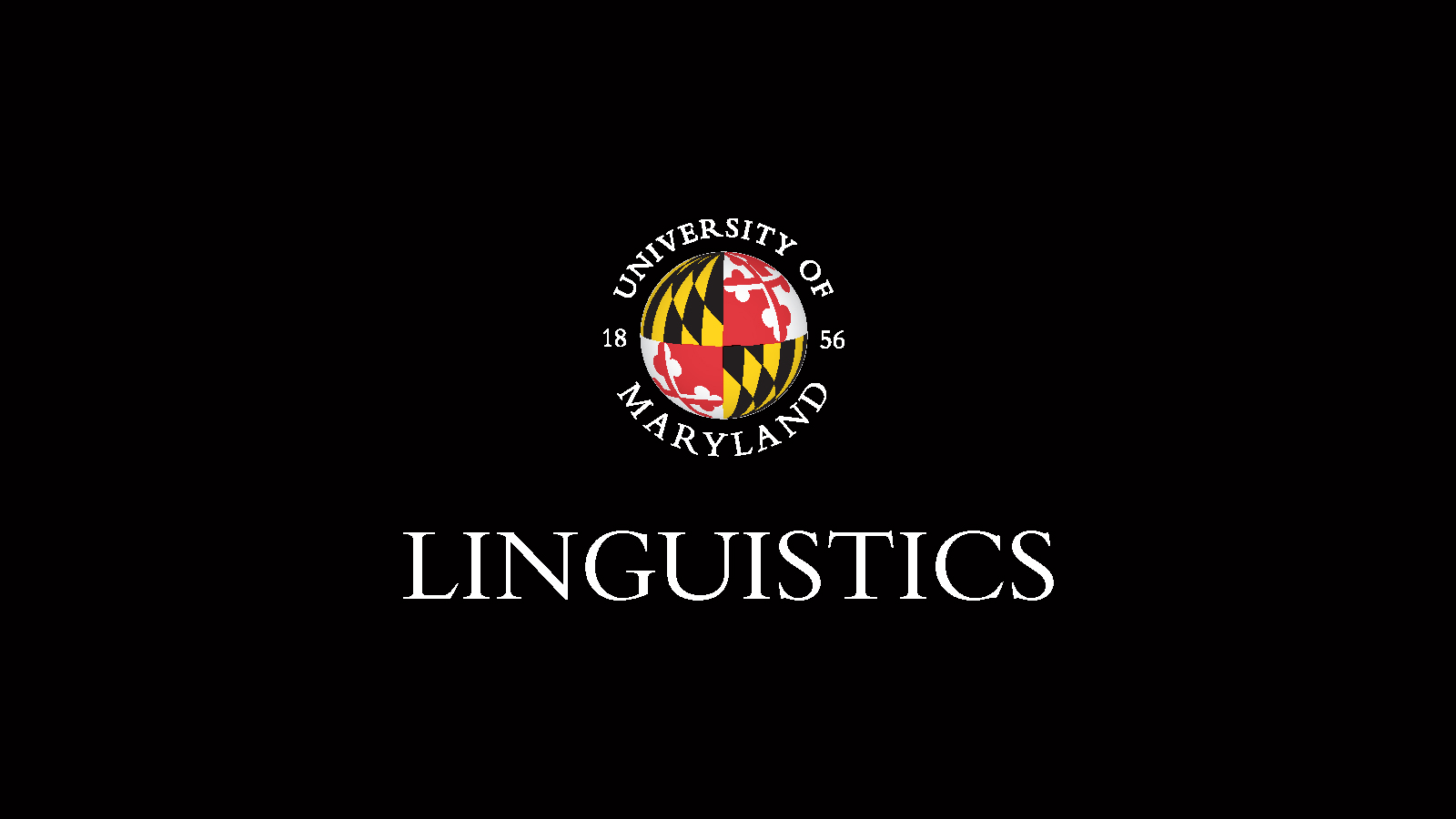Marylanders at Penn's virtual CUNY
February 22, 2021

Seven presentations on language acquisition and processing, plus more from alumni.
March 4-6, the University of Pennsylvania hosts the 34 Annual CUNY Conference on Human Sentence Processing, with an invited talk from Jeff Lidz; long talks by Tyler and undergrad Cassidy Wyatt; short talks from Masato, Rosa, Zoe Ovans, and Cassidy again, with former RA Maggie Kandel, alongside faculty collaborators Colin Phillips, Jeff Lidz, Yi Ting Huang and Jared Novick; plus much more from our illustrious alumni, including undergraduate alums Morgan Moyer and Jon Burnsky; PhD alums Julie Gerard, Jeff Green, Allyson Ettinger, Shota Momma, Dave Kush, Brian Dillon, Matt Wagers, Masaya Yoshida and Phil Monahan; postdoc Ming Xiang; and several past visitors, including Iria de Dios Flores, Alex de Carvalho, Lyn Tieu and Matt Husband.
Invited talk
Jeffrey Lidz - Second-year syntax: Discovering Dependencies
Long talks
Tyler Knowlton, Justin Halberda, Paul Pietroski and Jeffrey Lidz - Evaluating each- (but not every-) sentences encourages encoding individual properties
Cassidy Wyatt, Margaret Kandel and Colin Phillips - Number attraction in pronoun production: Evidence for antecedent feature retrieval
Short talks
Masato Nakamura and Colin Phillips - Online cloze evidence for rapid use of lexical and grammatical cues
Eun-Kyoung Rosa Lee - A divergence between judgments and response times in L2 agreement attraction
Zoe Ovans, Jared Novick, Yi Ting Huang - Virtual-World eye-tracking: The efficacy of replicating word processing effects remotely
Margaret Kandel, Cassidy Wyatt and Colin Phillips - Transitioning to online language production: A direct comparison of in-lab and web-based experiments
Alumni presentations
Morgan Moyer and Judith Degen - A corpus-based study of (non-)exhaustivity in wh-questions
Jon Burnsky, Franziska Kretzschmar, Erika Mayer, Lisa Sanders and Adrian Staub - Dissociating Effects of Predictability, Preview and Visual Contrast on Eye Movements and ERPs
Juliana Gerard - The acceptability of null subjects
Kari Schwink and Jeffrey Green - Spreading jam with a butter knight: Near-homophones and phonological pre-activation
Jiaxuan Li and Allyson Ettinger - A noisy channel model of N400 and P600 effects in sentence processing
Jeremy Doiron and Shota Momma - Underlying clausal structure modulates lexical interference: Evidence from raising and control
Shota Momma and Masaya Yoshida - Syntax guides sentence planning: Evidence from multiple dependency constructions
Anna Giskes and Dave Kush - What to expect when you are expecting an antecedent: Processing cataphora in Dutch
Adina Camelia Bleotu and Brian Dillon - Pronouns attract in number but (much) less so in person. Evidence from Romanian
Caren Rotello, Brian Dillon and Caroline Andrews - Multiverse analysis of eye-tracking data: Reexamining the ambiguity advantage effect
Daniela Mertzen, Brian W. Dillon, Ralf Engbert and Shravan Vasishth - An investigation of the time-course of syntactic and semantic interference in online sentence comprehension
Stephanie Rich and Matt Wagers - Syntactic and semantic parallelism guides filler-gap processing in coordination
Nicholas Van Handel, Matthew Wagers and Amanda Rysling - Guiding Implicit Prosody with Delexicalized Melodies: Evidence from a Match/Mismatch Task
Chi Dat Lam and Ming Xiang - The effect of representational complexity on working memory processes
Hyosik Kim, Ming Xiang and Masaya Yoshida - The Structure of Antecedent Influences Processing of Ellipsis
Ming Xiang, Christine Gu, Yixue Quan, Weijie Xu and Suiping Wang - Probability matching vs. regularization in contact-induced syntactic change
Ming Xiang and Weijie Xu - Reanalysis difficulty modulates cumulative structural priming effects in sentence comprehension
Caroline Berg-Love and Masaya Yoshida - Attachment Preferences in Participle Constructions
Wesley Orth and Masaya Yoshida - PPI Illusion Ignores Binding but is Facilitated by Reactivation
Ethan Myers and Masaya Yoshida - A cue-based approach to processing adjuncts
Breanna Pratley and Philip Monahan - Can English Idioms Undergo the Dative Alternation? A Priming Investigation


